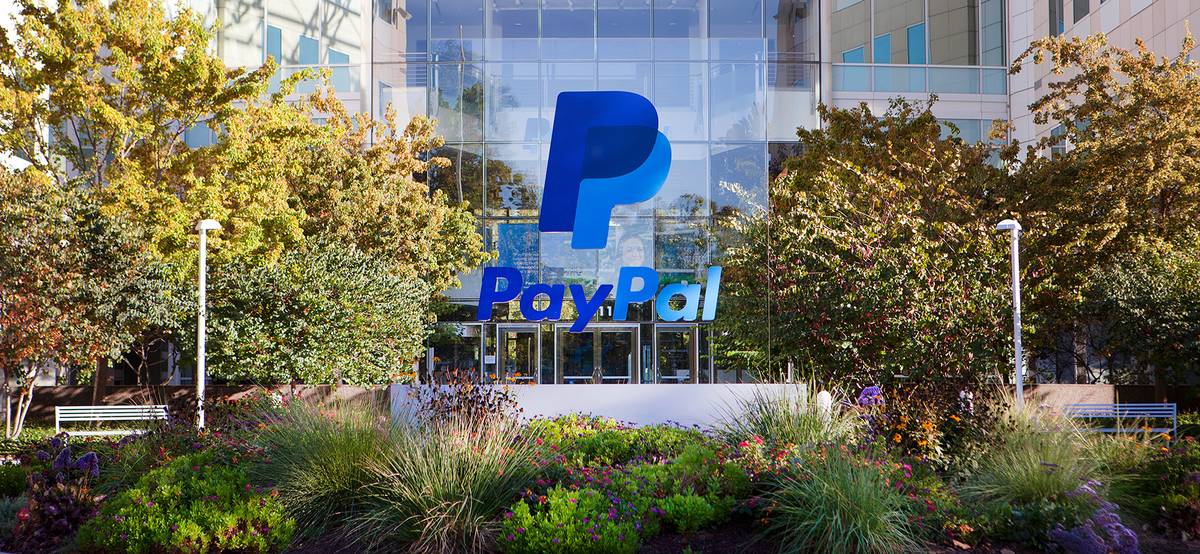
Food delivery services are suing for their future. PayPal is experimenting with installment plans. Coinbase wants variety.
Disclaimer: when we talk about, that something has grown, we mean a comparison with the same quarter a year earlier. Since all issuers are from the USA, then all results in dollars. When creating the material, sources were used, inaccessible to users from the Russian Federation. We hope, Do you know, what to do.
Summons delivery service
by Dash (NYSE: DASH), Grubhub и Uber Technologies (NYSE: UBER) sued New York City over local law, limiting the size of the commission, that these applications can charge restaurants for using the platform. According to the law, applications can take no more 15% from the amount of the order for delivery and no more 5% for marketing and other services, not related to logistics. In this way, restaurant fees for applications were limited by law 20% of the order amount.
Law, By the way, was originally temporary: accepted during the pandemic, to somewhat ease the fate of restaurants, who, during the period of the most stringent quarantines, were forced to work only for delivery, which greatly reduced their profitability.. In our analysis of these services, it was mentioned, that even before the pandemic, hosting customers in a restaurant was noticeably more cost-effective, how to deliver food to them, not least because of the initially low marginality of public catering. Without this law, in New York, these applications could be taken from restaurants. 30% and more of the order amount as a commission.
As the pandemic dragged on and, probably, won't end soon, Now in New York, the adoption of this law on a permanent basis is being discussed.. So said apps decided to counterattack and sued the city, Stating, that this law cost them hundreds of millions of dollars in lost revenue and generally demonstrates a case of exceeding the jurisdiction of the authorities. Some cities have introduced a permanent limit on application fees - for example, in San Francisco this limit is 15% of the order amount.
It's hard to say now, How will the lawsuit in New York end?. AND, despite the tactical importance of this city in the revenue structure of these companies - after all, this is a very large agglomeration, - even a theoretical victory in this particular case does not cancel the problems of courts with other cities. Tonight they can beat New York, and tomorrow - lose Los Angeles.
Catering establishments are an important part of the economy of any city., and the lobby of restaurateurs, even if it does not dominate in city administrations, but they still listen. The interests of delivery services in terms of commissions are in conflict with the interests of restaurants - and the latter, certainly, will seek to squeeze these platforms and force them to lower their prices. So all these lawsuits with cities can drag on indefinitely.
For delivery services, this is rather bad news.: they are chronically unprofitable and all their hopes are connected with the, that “we’ll seize the market, and then how to raise prices!». Now it turns out, that prices cannot be raised much. Or maybe, even have to drop them altogether. So the shareholders of these companies should mentally prepare for at least a decrease in their revenue growth rates.. Or maybe, and to that, that in the near future these applications will go bankrupt.
Buy now, earn later. May be
Electronic payments giant PayPal (NASDAQ: PYPL) buys the Japanese app Paidy for 2,7 billion dollars. Paidy operates on a “buy now, pay later” model, allowing its users to buy goods in installments. The company earns on commissions from payments on store websites, where users buy products.
Paidy profitability - this great secret is: there is nothing about the profitability of the company in the presentation about the purchase, so we will consider, that she is unprofitable. For PayPal, this is more of an experiment.: on Paidy it will be possible to test, how promising the installment business will be for the business of PayPal itself. As a testing ground, Paidy is more than adequate for a number of reasons.
Access. Paidy has access to 10 the largest marketplaces in Japan, in particular: Amazon, Shopify and Rakuten. Working on its platform 700 thousand sellers, and registered there 6 million users. For the first half 2021 year total value of all goods, sold on the company's platform, amounted to 1,5 billion dollars.
Developed economy. Japan is a developed high-tech economy. At the same time, it shows the future of other developed countries.: a high level of development is adjacent to the stagnation and aging of the population, whose purchasing power is relatively high, but almost never grows.. So it will be quite logical to test the venture with installments in Japan..
Truth, this experiment is very expensive: Paidy's annual revenue, according to some analysts, is somewhere in the region of 65-75 million dollars. So that, maybe, PayPal heavily overpaid for this company. This could be a problem for shareholders of other fintech issuers.
The installment plan is becoming more and more popular in developed countries for economic reasons.: income is not growing, and the debt burden of many is already too large, to increase it with new credits. Therefore, startups in this industry are becoming very popular - and cost exorbitant money.. Square recently acquired Australian installment shopping service Afterpay for 29 billion dollars. The more popular this method of consumer payments will become, the more unreasonable money the founders of the respective startups will ask for their brainchildren. And not a fact, that these costs will still be recouped. On the other hand, the largest fintech companies like Visa do not suffer from a lack of money, and their business is extremely stable and marginal - so they can afford to spend money on any whim as an experiment.
Back to PayPal: even if the installment business does not justify itself, then for PayPal this transaction can still bring indirect benefits, contributing to the expansion of its presence in Japan - a very rich and interesting country in terms of business.
SEC does not want, and Coinbase can
Cryptocurrency exchange Coinbase (NASDAQ: COIN) plans to launch a loan product for its users based on cryptocurrencies with a yield in the area 4%. And the US Securities Commission (SEC) threatens to sue the company, if she implements this plan.
The reason is very simple: the cryptocurrency market is regulated in almost no way. Although there are certain movements in the direction of regulation, in fact, this market is subject to the rules of the wild frontier - that is, no rules and, respectively, there is no consumer protection.
Coinbase positions its product as an analogue of a bank deposit, but the SEC insists, what is this analogue of securities. How will this story end, it's hard to say now, but, in my opinion, she has good potential, to turn into a massive lawsuit. Moreover, the result here will be absolutely unpredictable.: SEC draws on precedents in its risk analysis of new Coinbase product 1946 And 1990 years, when there were no cryptocurrencies. So the position of the court here cannot be guessed even approximately.
Coinbase's interest here is more than understandable.: the more products the company can offer to its customers, the more secure her financial position will be. You won’t get far with the activity of clients on commissions alone: it's a shaky foundation for business, because it all depends on the seasonal mood swings of speculators. But variations with deposits and structured products allow the company to plan revenue and profit indicators for a long time.. Such decisions, usually, very marginal for brokerage companies, among which, in fact, applies to Coinbase.
If you are a client of any broker, then they regularly call you from there and offer some structural products. And all because, that such solutions for a broker will be much more profitable than the activity of the lion's share of clients on the exchange. Let's say, customer, bought shares in 10 million dollars and holding them for a very long time, will pay the commission once and, in general,, this will be limited to. The client will be much more profitable, endlessly chasing 10 thousand rubles for forex and exchange, but there are not very many such maniacs. And again, it is impossible to count on a stable influx of such customers - as well as on their maintaining such rates of activity.
Therefore, it is very profitable for brokers to sell various solutions with a fixed expiration date and, usually, sanctions for the client for early termination of the contract, to get client money under management and do whatever you want with it.
So the ability to create more and more new solutions and products for Coinbase will be an important step towards further business development.. Respectively, depriving the company of such an opportunity in the long term will seriously limit the growth potential of its business. If I were Coinbase shareholders, I would be following this dispute closely., which has not yet even turned into a trial.
